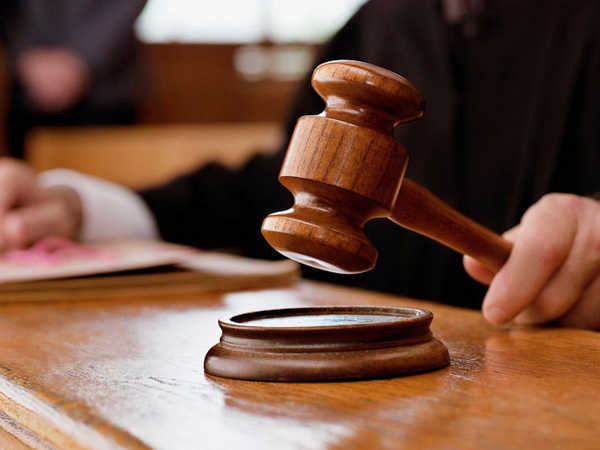
Satya Prakash
The Supreme Court is mandated to protect fundamental rights of citizens and, barring a few exceptions, it has satisfactorily performed the task of acting as a bulwark against excesses on part of the Executive.
But some of its recent verdicts/orders on the issue of free speech have been frowned upon by many for lack of consistency as these appeared sending out confused signals regarding one of the most cherished fundamental rights guaranteed to citizens under the Constitution.
On May 14, while ordering the release of West Bengal BJP Yuva Morcha activist Priyanka Sharma for allegedly sharing Chief Minister Mamata Banerjee’s meme on Facebook, a Bench headed by Justice Indira Banerjee ordered that at the time of her release, she would tender an apology in writing.
Almost a month later, the Supreme Court on June 11 ordered immediate release of journalist Prashant Kanojia, who was arrested for allegedly posting objectionable material against UP Chief Minister Yogi Adityanath on social media. While disapproving of his tweets, another Bench headed by Justice Indira Banerjee, however, didn’t find it necessary to put any such rider.
“Liberty of citizens is sacrosanct and non-negotiable. It is guaranteed by the Constitution and it can’t be infringed…We don’t appreciate tweets. But what we are bothered about is why he was arrested. We live in a country where there is a Constitution. Proceed against him in accordance with law... But can he be put behind bars for that?” the Bench rightly wondered while ordering his release.
There can’t be any disagreement with the top court’s comments that are like music to the ears of any freedom-loving citizen. Also, no one can question its decision not to ask
Kanojia to apologise. The issue is why Sharma was ordered to apologise when her petition remained pending and the allegations against her were yet to be put to judicial scrutiny.
Similarly, the SC has given contradictory findings on petitions against release of films. Paving the way for the nationwide release of “Padmaavat”, the Supreme Court, on January 24, 2018, stayed orders issued by Haryana, Rajasthan and Gujarat banning the screening of the Deepika Padukone-starrer controversial film citing the issue of public order.
“Once the parliamentary legislation (Cinematograph Act, 1952) confers the responsibility and the power on a statutory board (Central Board of Film Certification) and the board grants certification, non-exhibition of the film by the states would be contrary to the statutory provisions and infringe the fundamental right of the petitioners,” a Bench headed by the then Chief Justice of India Dipak Misra said.
Citing its verdict in Prakash Jha’s case (2011), the top court said, “It is the duty and obligation of the State to maintain law and order.”
Based on the saga of the historic battle of 13th century between Maharaja Ratan Singh and his army of Mewar and Sultan Alauddin Khilji of Delhi, the film was opposed by Rajputs for alleged character assassination of Padmawati and distorting history. Deepika Padukone played the legendary Rajput queen in the film, while Ranveer Singh played Muslim emperor Alauddin Khilji.
But the court had dismissed the concerns of those opposing it, saying the film was a work of fiction.
But in the case of a biopic on PM Narendra Modi—the Supreme Court on April 26 refused to interfere with the Election Commission’s decision not to allow its release during the ongoing Lok Sabha poll.
A Bench headed by Chief Justice of India Ranjan Gogoi rejected the film producers’ submission that the EC’s decision went against the certificate given to the film by the Central Board of Film Certification.
Article 19(1)(a) of the Constitution says, “All citizens shall have the right to freedom of speech and expression.”
But Article 19(2) authorises the State to make laws imposing reasonable restrictions on free speech in the interest of the sovereignty and integrity of India, security of the state, friendly relations with foreign states, public order, decency or morality or in relation to contempt of court, defamation or incitement to an offence. The State can’t restrict a citizen’s free speech on any grounds other than those specifically mentioned in Article 19(2).
Is it open to the Election Commission to use model code of conduct—which doesn’t have any statutory backing—to infringe free speech of citizens?
It can’t be allowed as it goes beyond the constitutional framework of free speech under Article 19(1)(a) and Article 19(2). As a constitutional court, the SC can’t afford to be inconsistent as it’s a court of record and its verdicts/orders are cited as precedent by courts below.
Inconsistency in apex court verdicts
Social media posts
- BJP Yuva Morcha activist Priyanka Sharma shared a meme on WB CM Mamata Banerjee on Facebook and the SC ordered that she will tender an apology in writing at the time of her release
- Journalist Prashant Kanojia posted objectionable material against UP CM Yogi Adityanath on social media, but ordering his release no such condition was imposed on him by the SC
Release of films
- The SC ordered the release of “Padmaavat” saying once the film has been cleared by the censor board, its release cannot be stopped; it even stayed orders of the Haryana, Rajasthan and Gujarat governments that banned its screening citing issue of public order (a ground admissible under Article 19(2) to curb freedom of speech)
- Biopic on PM Narendra Modi was also cleared by the censor board, but the SC refused to interfere with the EC ban on its release during the LS poll although imposition of the Model Code of Conduct is no ground under Article 19(2) of the Constitution to curb freedom of speech and expression



























